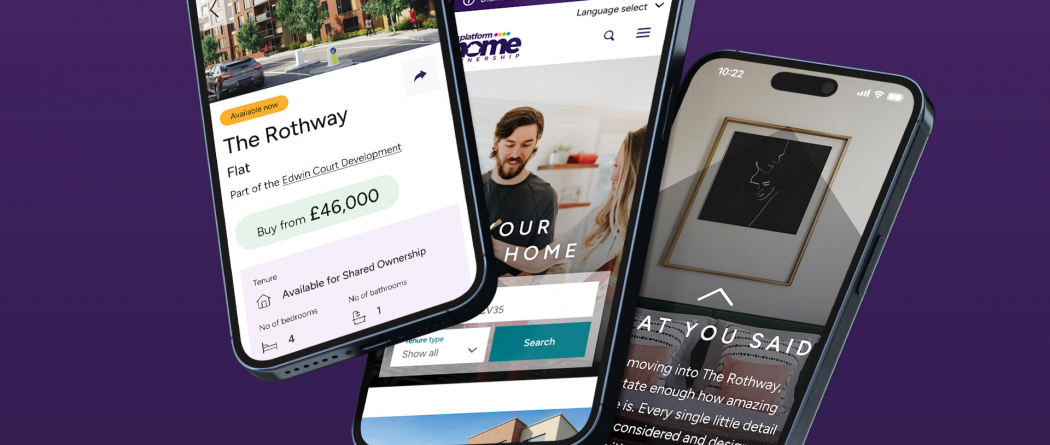
Insights Do you need to run cross platform campaigns in your digital marketing strategy?


They say the only constant in life is change. This has never been truer for digital marketing professionals who are looking to ensure that their brand is in the eyes of their ideal audience. Increased competition, changing digital technologies and complex customer journeys can make reaching this ideal audience difficult. Needless to say, these factors can leave most marketers scratching their heads in their attempt to reach these audiences.
These factors combined with the need to provide a seamless digital experience for your audience has led to marketers needing to consider the whole digital ecosystem. This is generally done through the use of cross platform digital marketing campaigns in your digital strategy. However, before we deep dive into whether you need cross platform marketing campaigns, we first need to define exactly what this is and what benefits it can bring to your digital marketing strategies.
What is cross platform marketing?
Cross platform marketing, otherwise known as omnichannel marketing, is defined as:
“the integration and cooperation of various marketing channels used by a business or company to create a consistent brand experience for your digital customers. This includes both offline and online channels.”
Breaking this down into the simplest marketing terms is the use of multi marketing channels as a means to reach your ideal target audience at various points in the marketing funnel to drive results. Additionally, the use of this type of marketing is aimed at providing online consumers with necessary information at the ideal time.
An example of this type of marketing in action would be a marketing campaign that uses both Google Search and Facebook campaigns to drive a seamless digital experience. In the above example each of the marketing channels may have a specific goal. This is seen with the Facebook activities focusing on audience prospecting, whilst the search ads will focus on driving considerations and conversions.
Given that we have briefly covered what cross platform marketing campaigns or omnichannel marketing is, our next step will be to discuss the importance of running multiple marketing campaigns and the considerations that marketers need to consider.
Why is omnichannel marketing so important for your digital strategy?
As we have briefly covered, the modern day digital user experience has become more complex and complicated than ever before. This is due in part to increased competition, changing digital behaviours, decreased audience attention time, and inconsistent messaging. All of these factors have made the modern day approach of multi-channel marketing more complex and difficult for marketers to ensure that their efforts are effective in reaching their ideal audience and ultimately delivering campaign results.
Provide a streamlined digital experience
These efforts are simplified with the use of omnichannel marketing aimed at ensuring your customers are seamlessly engaging with your marketing through multiple channels. Essentially these efforts put the customer first and help build audience trust in your company’s product or service.
Streamlined marketing messaging
In addition to building audience trust in your marketing offering, omnichannel marketing also helps assist marketers in simplifying the marketing messages to your ideal audience. In essence, the use of multiple channels promoting a singular message which focuses on promoting brand engagement and consideration. Ultimately, omnichannel marketing helps ensure increased customer loyalty when compared to traditional or singular marketing campaigns.
Increased audience considerations and conversions
The third benefit that omnichannel marketing campaigns offer marketing strategies lies in the fact that these efforts help with customer retention and promote conversion behaviour for your targeted audience. This is in part due to the fact that the running of multiple marketing channels helps to capture users at various points in the marketing funnel. An example of this could be the running of remarketing campaigns across Google Search to drive conversions for users who may have previously visited your website.
Lowered customer acquisition costs
The fourth benefit offered by omnichannel or cross platform campaigns is that these campaigns offer a lower acquisition cost for your marketing efforts. This is the result of multi-channel marketing allowing for efficiencies in marketing spend to reach and acquire a wider audience. It is a result of this lowered cost that cross-channel marketing ensures your messaging is effective in reaching your ideal audiences.
Clearer attribution data
The final benefit of omnichannel marketing strategies is the fact that these efforts provide better attribution data than singular marketing campaigns. This essentially means that these efforts can help track the customer journey across channels. This cross channel tracking provides marketers with better insights in seeing where audiences are engaging with your marketing efforts, and ultimately highlight the value of each marketing channel in this journey. Additionally, this data can be reused in your strategy to help build more targeted campaigns and ultimately optimise where your campaigns are spending money.
In summary, the use of cross platform marketing campaigns is vital for marketers who are looking to not only capture audience attention, but also provide a seamless cost-effective marketing experience for a wide array of targeted audiences across the marketing funnel. This is aimed at providing customers with a streamlined marketing funnel that pushes users to convert on your website. Further, the use of this campaign type can help provide more detailed insights into the behaviours of your audiences. This clearer understanding of audience engagement across your channels can help you refine your strategy and help maximise the performance of your marketing efforts.
What are the key considerations required when running omni-channel marketing?
With the benefits and value of omnichannel marketing now covered, there are a few considerations that marketers need to think about before running their first omnichannel marketing strategy.
Customer behaviour is key
The fact that omnichannel marketing campaigns help provide a seamless customer experience for the digital efforts of your brand can often override the relevance of specific marketing channels. It is generally advised that when marketers are formulating their digital strategy that they research and understand which channel best suits the needs of their customers.
If this is not considered it can cause a disconnect between the marketing messaging and customer and lead to underperforming campaigns. An example of this type of disconnect is the running of ecommerce marketing on LinkedIn. This due to the fact that the LinkedIn platform mainly comprises professionals who are looking for opportunities to grow their professions.
It is with this in mind that marketers need to understand who they are trying to reach and how their ideal audiences interact with their marketing messaging.
The costs of doing business
The complex nature of running multiple marketing campaigns can often be very expensive for specific marketing campaigns. This use of multiple marketing channels can often restrict marketers in terms of delivering clear results for budget spent.
Along with this consideration the time spent in managing multiple channels can also lead to an increased cost on your bottom line. It is with increased costs of these multiple marketing channels that marketers need to clearly allocate channel budgets with whatever platform is likely to deliver positive returns on your marketing investment. An example of this could include marketers looking to prospect for a wide audience effectively may look to utilise Google Discovery or Facebook campaigns instead of LinkedIn.
Essentially marketers need to clearly understand the digital ecosystem and define which channels are likely to be cost-effective for their marketing investments.
The need for clear communication between marketing efforts
Like anything in life communication is key. There is a need to ensure that the key goals of each channel are explained and understood by your marketing team. Overcomplicated or unclear communication channels can lead to marketing efforts being constrained and a disconnected digital experience. An example of this could be that internal team communications for the implementation of your strategy are not aligned and that your efforts are not effective for whatever phase in the marketing funnel they are aimed at.
It is generally advised that marketers run cross platform campaigns to ensure that your marketing efforts are effective in reaching your ideal audience at the right time.
We have now covered the definition of cross platform marketing campaigns, as well as their benefits and the considerations that marketers need to consider when running them. We hope that you consider them for your next strategy and are ready to take a deep dive into the changing digital landscape with your own digital marketing strategy.
Share insight
Let's talk
- Call us +44 (0) 1256 334567
If you would like to find out more about how we can help you connect strategically, creatively or digitally, then call us or get in touch. We’d love to hear from you.












